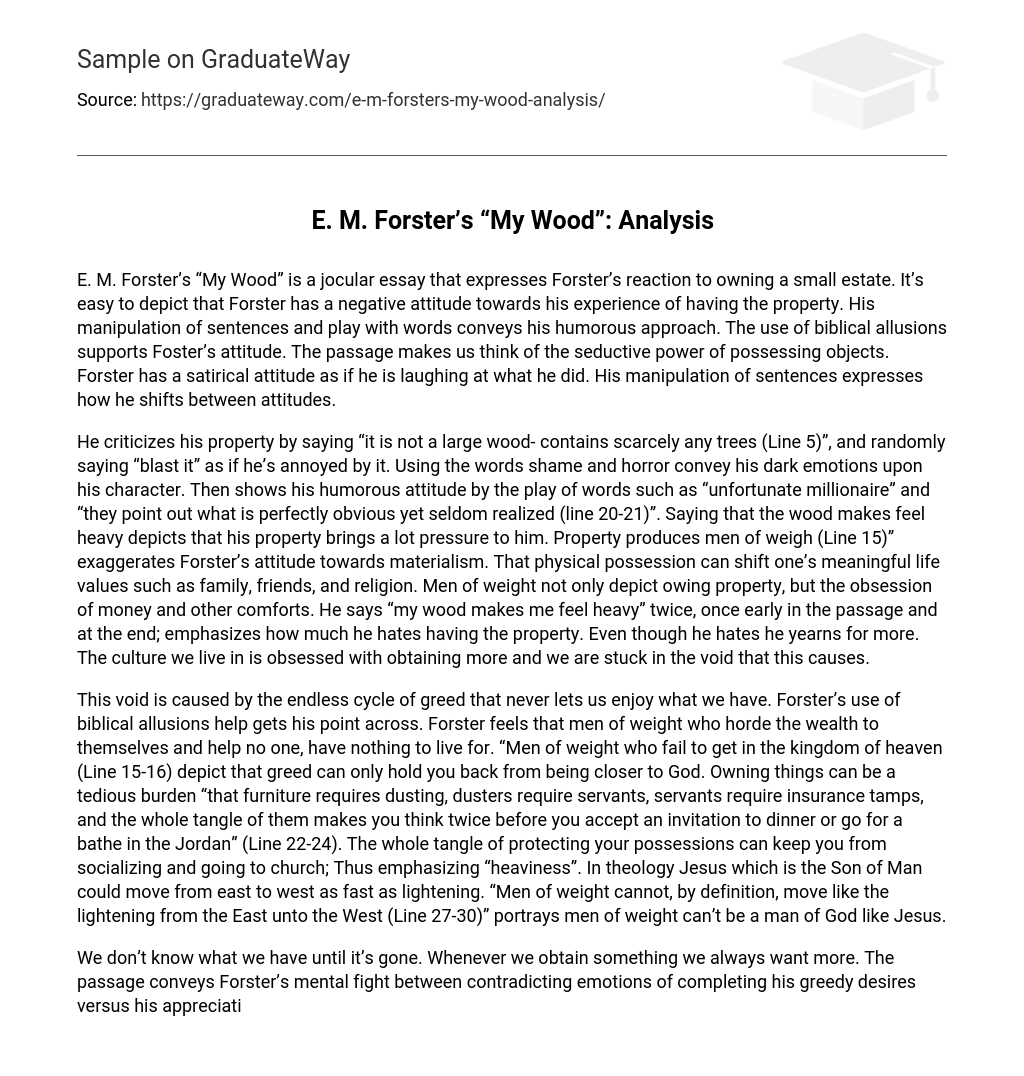E. M. Forster’s “My Wood” is a jocular essay that expresses Forster’s reaction to owning a small estate. It’s easy to depict that Forster has a negative attitude towards his experience of having the property. His manipulation of sentences and play with words conveys his humorous approach. The use of biblical allusions supports Foster’s attitude. The passage makes us think of the seductive power of possessing objects. Forster has a satirical attitude as if he is laughing at what he did. His manipulation of sentences expresses how he shifts between attitudes.
He criticizes his property by saying “it is not a large wood- contains scarcely any trees (Line 5)”, and randomly saying “blast it” as if he’s annoyed by it. Using the words shame and horror convey his dark emotions upon his character. Then shows his humorous attitude by the play of words such as “unfortunate millionaire” and “they point out what is perfectly obvious yet seldom realized (line 20-21)”. Saying that the wood makes feel heavy depicts that his property brings a lot pressure to him. Property produces men of weigh (Line 15)” exaggerates Forster’s attitude towards materialism. That physical possession can shift one’s meaningful life values such as family, friends, and religion. Men of weight not only depict owing property, but the obsession of money and other comforts. He says “my wood makes me feel heavy” twice, once early in the passage and at the end; emphasizes how much he hates having the property. Even though he hates he yearns for more. The culture we live in is obsessed with obtaining more and we are stuck in the void that this causes.
This void is caused by the endless cycle of greed that never lets us enjoy what we have. Forster’s use of biblical allusions help gets his point across. Forster feels that men of weight who horde the wealth to themselves and help no one, have nothing to live for. “Men of weight who fail to get in the kingdom of heaven (Line 15-16) depict that greed can only hold you back from being closer to God. Owning things can be a tedious burden “that furniture requires dusting, dusters require servants, servants require insurance tamps, and the whole tangle of them makes you think twice before you accept an invitation to dinner or go for a bathe in the Jordan” (Line 22-24). The whole tangle of protecting your possessions can keep you from socializing and going to church; Thus emphasizing “heaviness”. In theology Jesus which is the Son of Man could move from east to west as fast as lightening. “Men of weight cannot, by definition, move like the lightening from the East unto the West (Line 27-30)” portrays men of weight can’t be a man of God like Jesus.
We don’t know what we have until it’s gone. Whenever we obtain something we always want more. The passage conveys Forster’s mental fight between contradicting emotions of completing his greedy desires versus his appreciation of life in general. His shifts of attitude between angry and comedic shows evidence of deeply bedded uncertainty of what he wants. It’s important to remember money and objects don’t bring happiness if you don’t appreciate what you already have.





